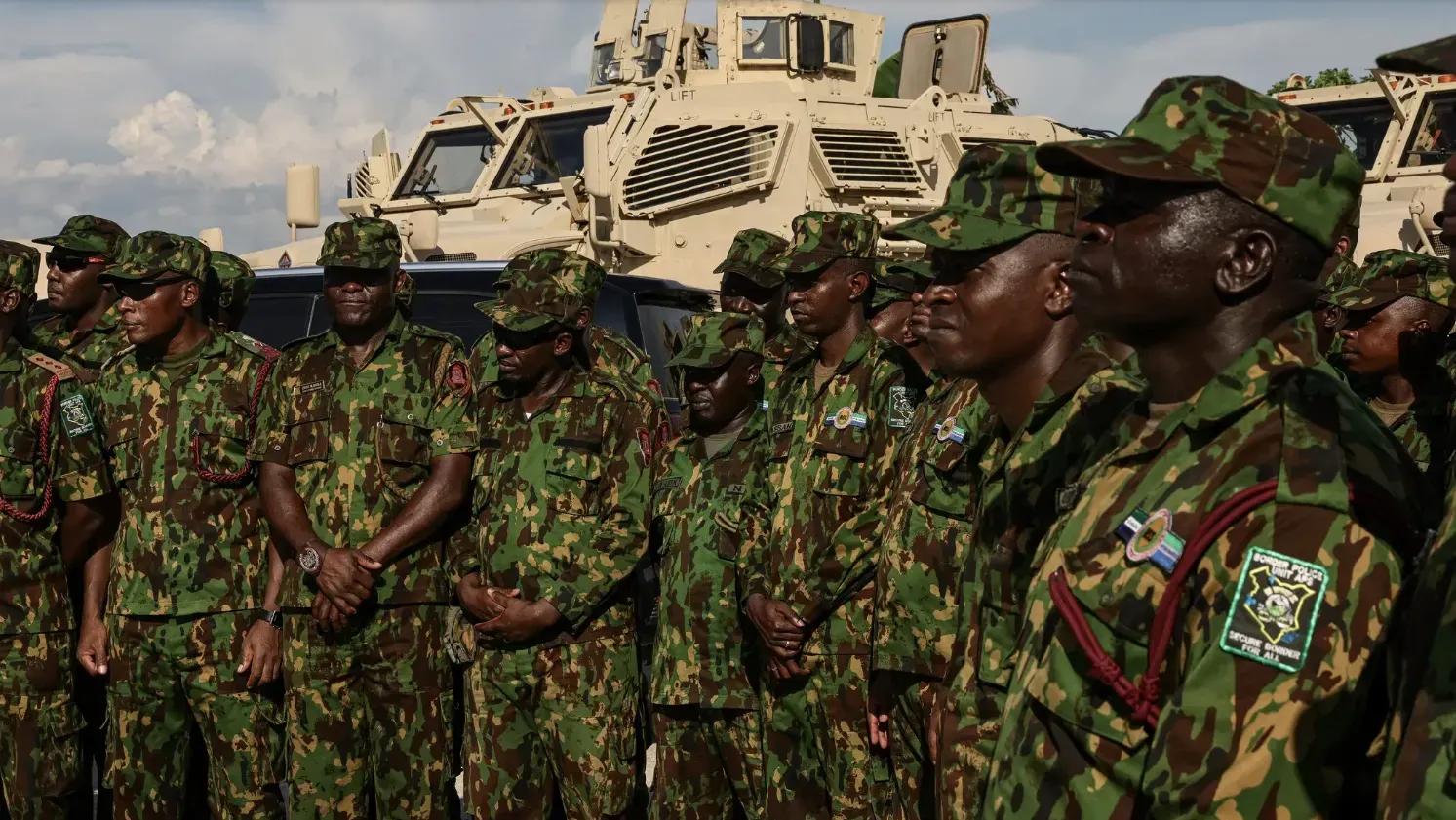Kenyan police officers, who are part of an international security mission, last year in Port-au-Prince, Haiti. The mission has largely been ineffective in curbing gang violence in the country. Credit... Adriana Zehbrauska
The recent proposal from the United States and Panama to create a "gang suppression force" in Haiti — a contingent of up to 5,550 personnel with military and lethal powers — seems, more than a strategic innovation, a repetition of an old melody in the score of Caribbean geopolitics. Behind the rhetoric of urgency and humanitarianism lies the impulse of an interventionism that Haiti knows by heart: the language of foreign boots on exhausted soil.
The partial failure of the multinational mission led by Kenya has served as a catalyst to justify this new initiative. However, it is important to emphasize that the "ineffectiveness" of that mission does not solely stem from a lack of tactical capabilities or logistical resources. The problem is deeper and systemic: Haiti, in its condition as an involuntary laboratory of the international order, has been condemned time and again to depend on exogenous solutions that, far from strengthening its institutions, weaken them, creating a vicious circle of dependency, precariousness, and delegitimization.

A geopolitical reading
The Caribbean has historically been a testing ground for U.S. foreign policy. The military occupation of Haiti from 1915 to 1934 set a precedent: almost two decades of direct control under the guise of "restoring order," but with the consequence of implanting a political system molded for external convenience. Years later, the successive United Nations missions — including the notoriously infamous episode of cholera introduced by blue helmets — reinforced the narrative of a state unable to sustain itself without international tutors.
Today, the plan from Washington and Panama revives that logic. A force with lethal capabilities, with strategic direction shared among foreign powers, can hardly be perceived as neutral or as a tool for Haitian emancipation. Rather, it risks being interpreted as a "subrogation of sovereignty" disguised as a security operation. Russia and China point this out with cynicism, but not without reason: the Haitian fracture has been amplified by international interference, not mitigated.
Security and structural ungovernability
The official narrative emphasizes "gang suppression" as if these were an isolated phenomenon, disconnected from institutional collapse and structural poverty. However, Haitian gangs are not an alien body grafted onto a healthy organism; they are the violent crystallization of a crumbling state and a political economy of dispossession. Their power does not stem solely from weapons but from the absence of social, economic, and political alternatives for vast sectors of the population.
To pretend that an international force, however robust and lethal, can eradicate the phenomenon without addressing the structural roots — inequality, clientelism, corruption, and the historical erosion of the state — is akin to treating a chronic illness with a quick-acting analgesic.
The international dimension: negative peace or future building?
The U.S. proposal could, at best, restore a "negative peace," understood as a temporary absence of armed violence. But the crucial question is whether Haiti needs another militarized mission or a true process of institutional reconstruction that starts from Haitian autonomy and not from external imposition.
The UN Security Council, caught in the chess game of crossed vetoes, is unlikely to reach a consensus. And perhaps that much-criticized blockage is not just an obstacle but also an opportunity: a pause that forces a rethinking of the intervention paradigm, to listen to Haitian voices and to recognize that security cannot be reduced to the extermination of gangs, but must include education, health, infrastructure, and, above all, effective sovereignty.
The political imagination
Haiti is once again at the epicenter of a global dispute that reveals more about the international order than about the island itself. Will it again be the scene of a "de facto protectorate" under new names and flags, or will a different path emerge? The history of the country, the first independent black republic in the world, reminds us that emancipation can sprout even in contexts of extreme adversity.
The challenge is not to suppress gangs with more sophisticated rifles, but to conceive a political horizon in which Haiti ceases to be an eternal patient of foreign emergency therapies. The real question, uncomfortable but inevitable, is this: are we doomed to recycle old formulas of occupation under the guise of "international missions," or will we be capable of imagining a new model of accompaniment that respects Haitian dignity and sovereignty? The answer will determine not only the future of Haiti but also the ethical credibility of global governance in the 21st century.

Comments